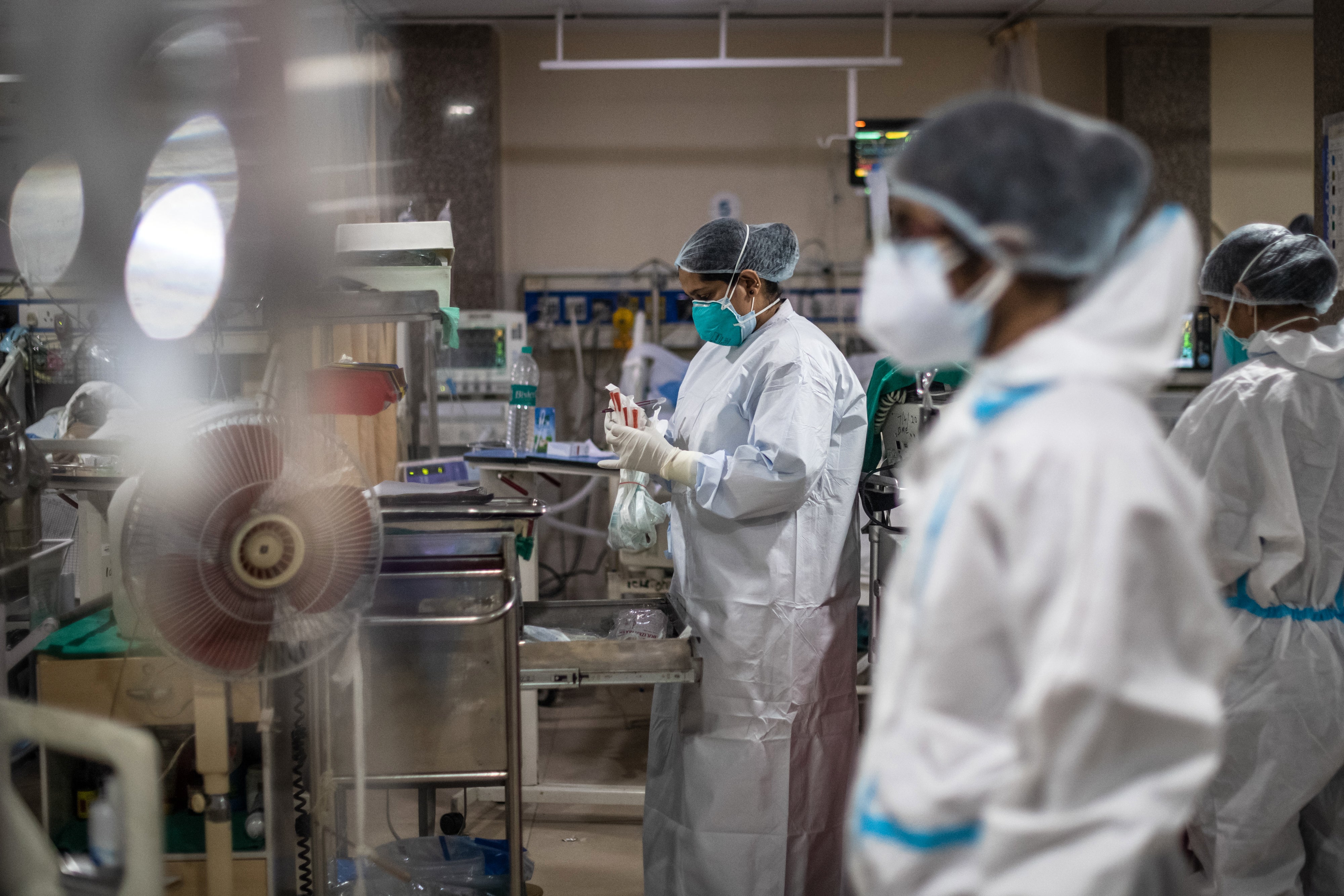14 Indian post-Covid patients develop ‘unusually large’ liver abscesses, 1 dies from excessive bleeding
Doctors say lowered immunity after the infection and use of steroids are possible causes

Your support helps us to tell the story
From reproductive rights to climate change to Big Tech, The Independent is on the ground when the story is developing. Whether it's investigating the financials of Elon Musk's pro-Trump PAC or producing our latest documentary, 'The A Word', which shines a light on the American women fighting for reproductive rights, we know how important it is to parse out the facts from the messaging.
At such a critical moment in US history, we need reporters on the ground. Your donation allows us to keep sending journalists to speak to both sides of the story.
The Independent is trusted by Americans across the entire political spectrum. And unlike many other quality news outlets, we choose not to lock Americans out of our reporting and analysis with paywalls. We believe quality journalism should be available to everyone, paid for by those who can afford it.
Your support makes all the difference.Doctors at a private hospital in India’s national capital Delhi have found "unusually large" and multiple liver abscesses in at least 14 people who recovered from Covid-19 recently.
While 13 of them are stable and have been discharged, one patient died due to massive bleeding in the abdomen after rupture of abscess in the abdominal cavity, doctors at Delhi’s Sir Ganga Ram Hospital said.
The 14 patients included ten men and four women aged between 28 and 74 years.
Dr Anil Arora, chairman at the hospital’s Institute Of Liver Gastroenterology & Pancreatico Biliary Sciences, told The Independent that after about 22 days of recovery from Covid, these patients presented with fever, abdominal pain and discomfort.
He said: “We found abscesses in both lobes of their liver which were multiple and unusually large. One of them was 19.8 cm in size.”
Apart from these 14 patients, the hospital has also admitted at least two-three similar cases in recent days, he said.
The hospital said in a press release that lowered immunity due to Covid-19 and the use of steroids to treat the virus could have been the possible reasons behind the pus formation.
“The peak of the wave was between April and May 2021, and we got these 14 patients just three weeks later. We believe that the Covid-19 infection would have resulted in suppression of immunity. Eight of these patients had already been given steroids as part of their treatment for Covid-19,” Dr Arora said.
He said they had a “double whammy” because the infection already suppresses immunity and steroids also dampen a body’s immune response.
Liver abscess, or the formation of pus in the liver, is usually caused by a parasite known as entamoeba histolytica which is transmitted through contaminated food and water, the hospital said.
In about 90 per cent of the cases, this parasite remains in the intestines after consumption of contaminated food and water. But it tends to penetrate the intestines and move into the liver if the immune system is compromised, Dr Arora said.
This is one of the many complications that has been seen in patients in India who have recovered from Covid-19. The hospital had earlier reported cases of cytomegalovirus related rectal bleeding in recovered Covid patients.
The hospital said at the time that the patients had symptoms that included pain in the abdomen and blood in stool, which were reported around 20 to 30 days after they were diagnosed with Covid-19.
Meanwhile, India has also reported more than 45,000 cases of black fungus, called mucormycosis, and over 4,300 deaths associated with this rare fungal infection.
Join our commenting forum
Join thought-provoking conversations, follow other Independent readers and see their replies
Comments